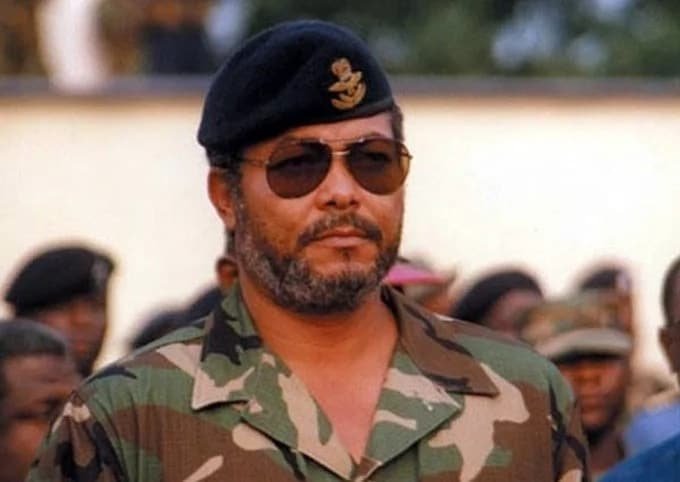The June 4 Revolution, also known as the June 4th Uprising, was sparked by the arrest and trial of Flight Lieutenant, Jerry John Rawlings and other junior military officers by the Supreme Military Council II (SMC II). Rawlings and his peers were charged with mutiny following a failed coup attempt on May 15, 1979.
Rawlings cited several reasons for the failed coup, including the refusal to pay salaries to junior officers, widespread corruption among SMC officials, poor governance, economic hardship, public frustration, and high levels of indiscipline within the Ghana Army.
Major Boakye Djan, a key figure in the uprising, later revealed that they had added a political dimension to their movement to promote African emancipation. This led to the formation of the Free Africa Movement (FAM), which aimed to address the continued influence of colonial powers over Africa, even after Nkrumah’s efforts for liberation.
Boakye Djan highlighted issues such as Ghana’s inability to set prices for its cash crops like cocoa, despite its independence.
Trial Day
Before the trial, Rawlings and some junior officers attempted a coup on May 15, 1979. The coup saw a brief exchange of fire between the plotters and SMC II officers. Major General Odartey Willington managed to reach the Ghana Broadcasting Corporation (GBC) to announce the coup’s failure. He and others involved were subsequently rewarded by the SMC II, while Rawlings and his accomplices were arrested.
The trial took place at Burma Hall in Accra, attracting thousands of civilians. The military tribunal was presided over by Col. Aninful, with Flt. Lt. Atiemo as the prosecutor. When asked if he wanted a separate trial, Rawlings responded, “I want to be with my men,” earning applause. Found guilty, he was imprisoned in a guardroom where he suffered severe finger injuries. During the trial, Rawlings accused the government of corruption and insisted on taking sole responsibility for the coup attempt to free his co-accused.
June 4, 1979
Two weeks after his imprisonment, on June 4, Captain Boakye Djan led an uprising that overthrew the SMC II and freed Rawlings. At the GBC, Rawlings addressed the public to quell rumors of his death.
Major-General Odartey Willington displayed notable defiance by engaging in a prolonged gunfight from an armored vehicle. When he ran out of ammunition, he surrendered at Nima Police Station, where he was killed by military officers. Rawlings later ensured he received a somewhat respectful burial.
This marked the beginning of the uprising. Military installations were searched, and senior officers loyal to SMC II were killed, including Col. Aninful and his family. Many supporters of the previous government fled the country.
The coup plotters established the Armed Forces Revolutionary Council (AFRC) with the following members:
Flt. Lt. Jerry John Rawlings – Chairman
Captain Boakye Djan – Official Spokesperson
Major Mensah Gbedemah
Lt Commander Akpaloo
Warrant Officer 2 Obeng
Private Owusu Adu
Corporal Owusu Boateng
Leading Air Craftsman Gaktipo
Lance Corporal Ansah Atiemo, among others.
The Aftermath of the Revolution
The regime initiated the “House Cleaning Exercise” to combat corruption. This led to the execution of three former military leaders, Lt. Gen. Afrifa, Gen. Acheampong, and Lt. Gen. Akuffo, along with five other senior officers, by special courts. The slogan “let the blood flow” emerged during this period, rallying support for the executions.
Many business entrepreneurs were targeted, and their assets were confiscated. Critics argue that the era was marked by high indiscipline among junior officers, leading to a breakdown of law and order, arbitrary arrests, beatings, abductions, killings, detentions, and the seizure of money and property.
The AFRC ruled from June to September 1979, before handing power to Dr. Hilla Limann. However, Rawlings overthrew Limann on December 31, 1981.
While June 4 is a significant date in Ghana’s history, it remains a painful reminder for those who lost loved ones, businesses, or had to flee the country.


